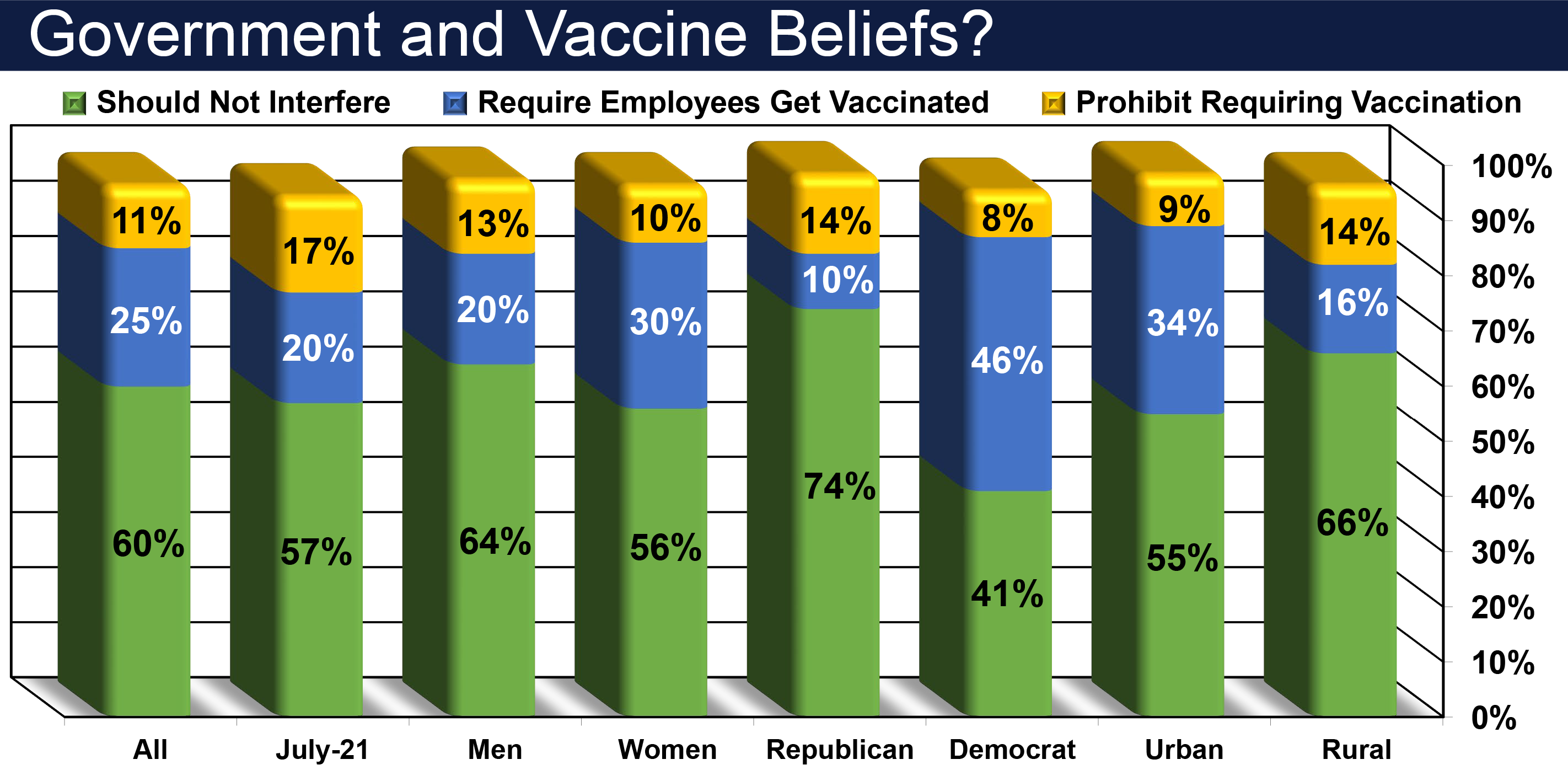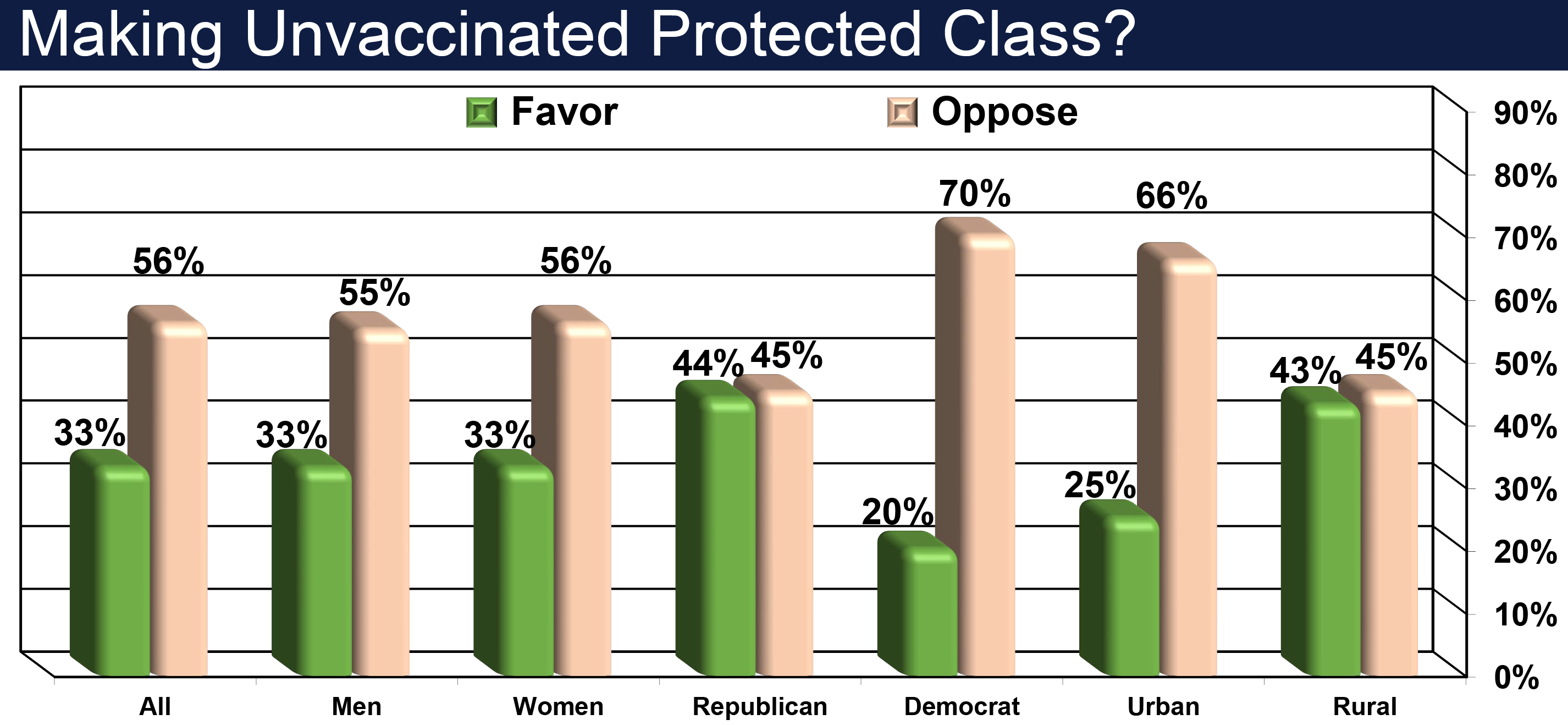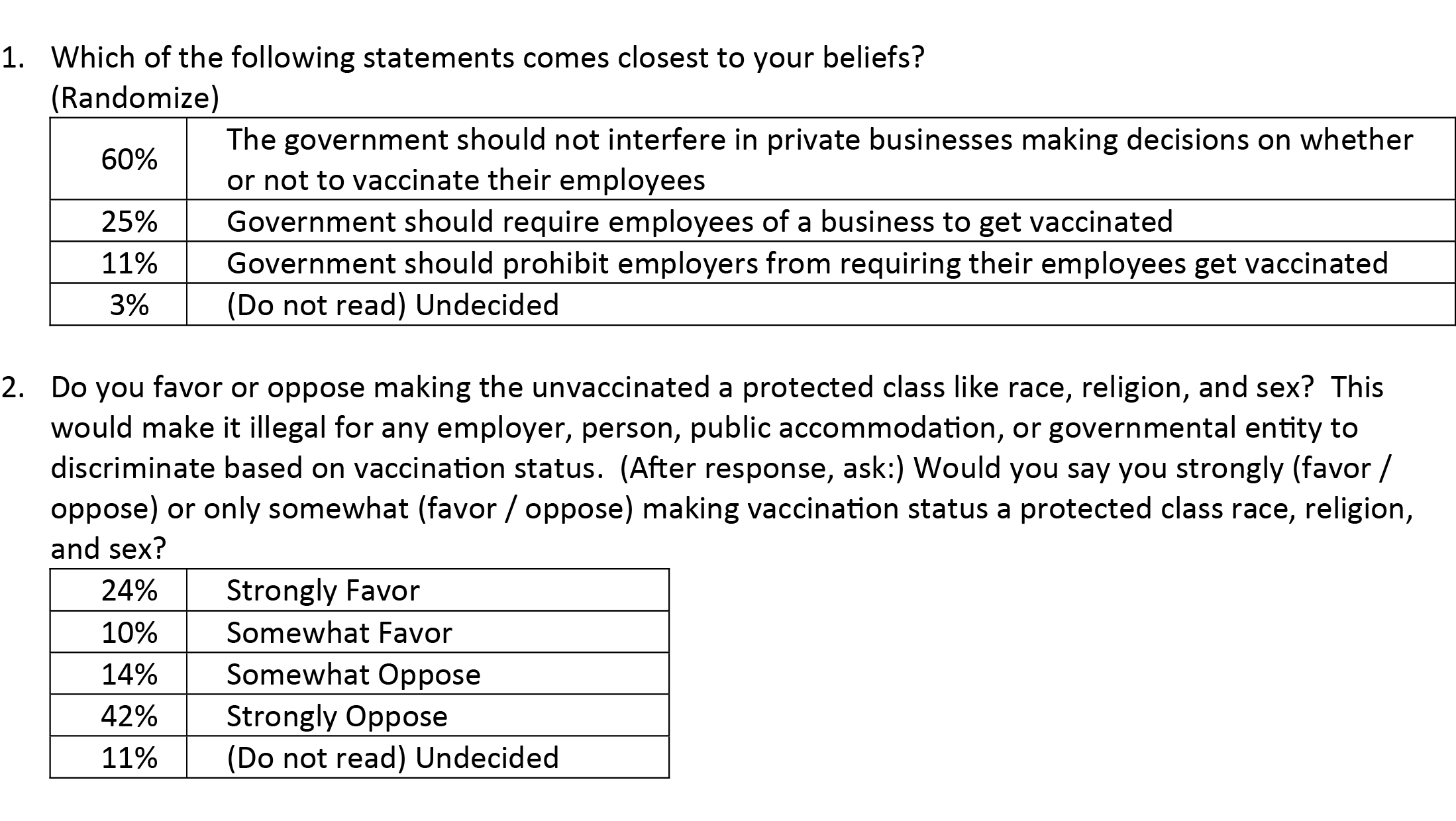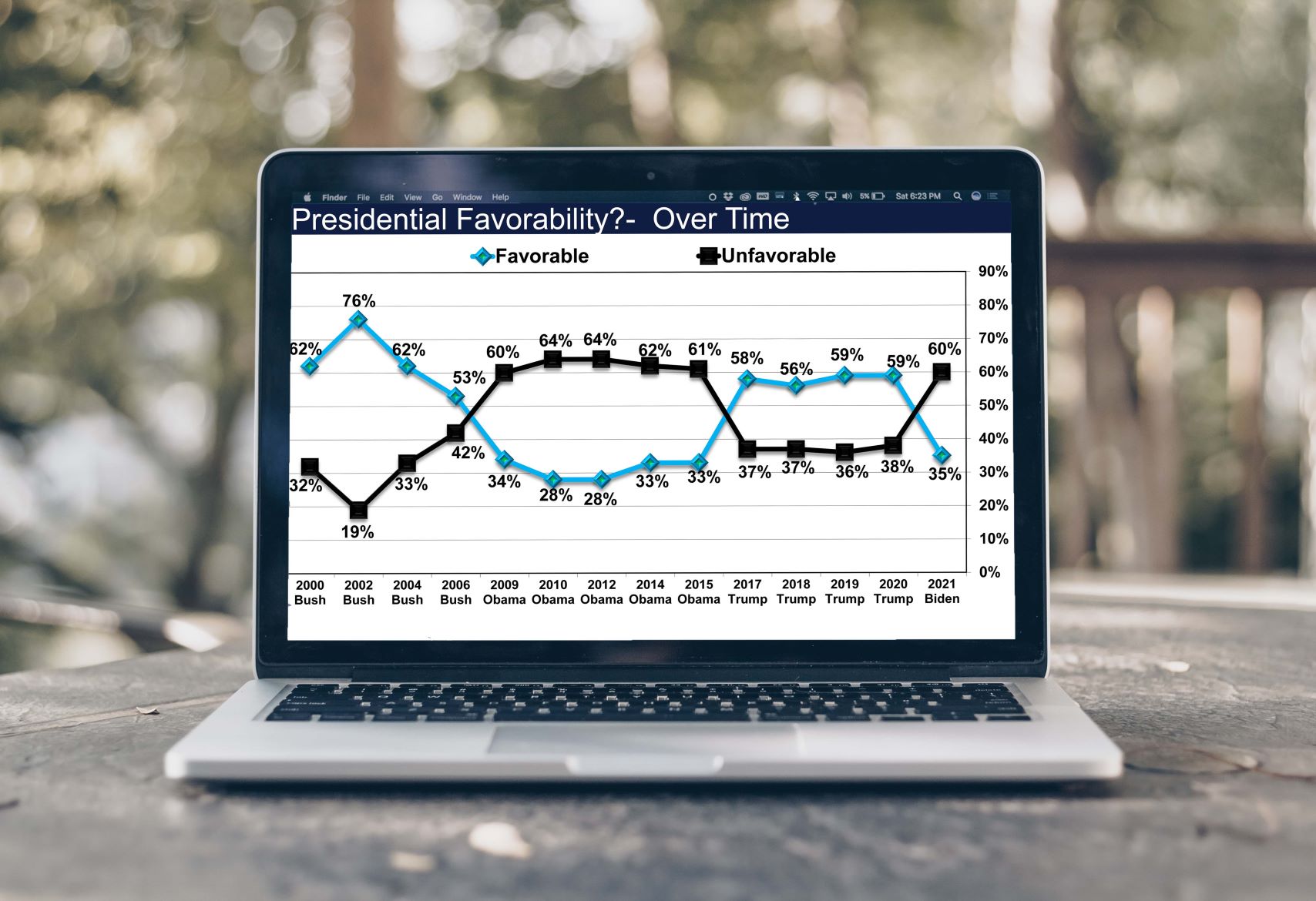Support for the rights of business increase after Biden Executive Order
Sooner Survey: Volume 33 No. 7 | October 25, 2021
By Pat McFerron, President
Cole Hargrave Snodgrass & Associate
![]() @McFerron
@McFerron
In July, we released numbers (Sooner Survey Volume 33, No. 5) that revealed that most Oklahomans do not want government to interfere in the relationship between employers and employees when it comes to vaccine policies. Subsequently, the Biden administration issued an executive order and decision-makers have again been asked to pick sides. The reality is the vast majority of Oklahoma voters just want government to stay out of telling businesses how address their employees and vaccines – and that is even more true today than when we tested it in July.
In July, coming on the heels of calls for a special session, we asked specifically about the role state government should play in requiring or prohibiting employers to have a vaccine policy. At that time 57% wanted the state government to not interfere, while 20% preferred a requirement that all employees be vaccinated and 17% wanted to prohibit private employers from requiring a vaccine. A few months later, and just saying “government” instead of “state government”, we see even more Oklahomans opposing government interference (60%) while those wanting to require vaccines have been emboldened by Biden’s proclamation and want to force businesses to require vaccines (25%), but those supporting the oppose – prohibiting employers from requiring a vaccine – has dropped to only 11%. Even among Republicans, those opposing any interference (74%) far outnumber those wanting to prohibit an employer from requiring vaccines (14%).
Only among registered Democrats do we ever see less than a majority opposing government interference – and here it is because 46% would prefer the Biden approach of requiring a vaccine.
While there are vocal Republicans who want the governor and other leaders to take extreme stands on this topic, they are out-of-step with the bulk of members of their own party. A group that becomes especially vulnerable are those Republicans over the age of 65. Among senior citizens – a solid Republican constituency, more than three times as many want to require vaccines (30%) and want to prohibit their requirement (9%). We are seeing the more strident Republican stances on the virus taking its toll among this constituency that feels more vulnerable to the pandemic on issues like direction of the state and generic ballots. If Republican leaders cave to the pressure of the 14% of primary voters who want a special session on this topic, there is a very real risk that it could jeopardize support among not only these senior citizens, but also suburban affluent voters.
Oklahomans also oppose making the unvaccinated a protected class by a wide margin (33% Favor / 56% Oppose). This question sought to replicate the recent law passed in Montana that prohibited discriminated based base on vaccination status. This issue divides Republicans (44% Favor / 45% Oppose) while largely uniting Democrats (20% Favor / 70% Oppose). As such, it makes no political sense for Republicans to highlight this intra-party divide. In addition to the partisan difference, we see a very substantial urban/rural split with those in the two great metro centers being solidly opposed (25% Favor / 66% Oppose) while those in the rest of the state being divided (43% Favor / 45% Oppose). Again, we see senior citizens demonstrating more concern with 63% opposing special status. WE also see those in households with incomes exceeding $100,000 noticeably more opposed (29% Favor / 64% Oppose). Still, no geographic, gender, ideological, age, or income group has a majority supporting the Montana anti-discrimination law coming to Oklahoma










Recent Comments